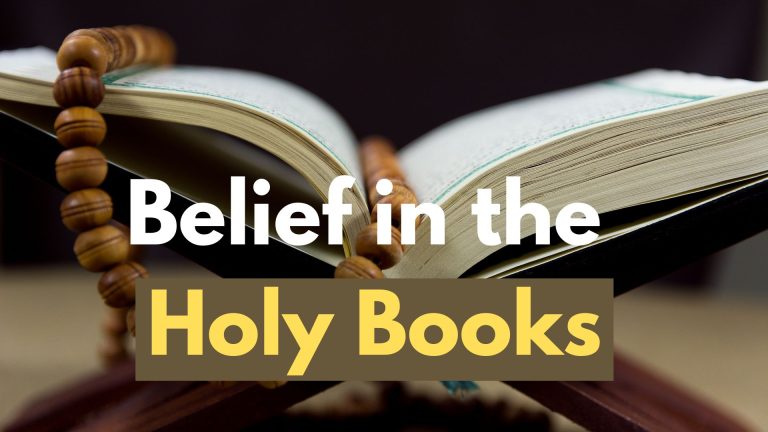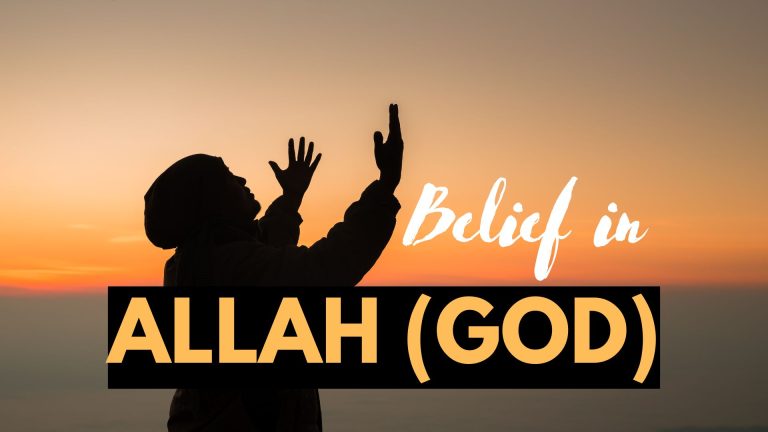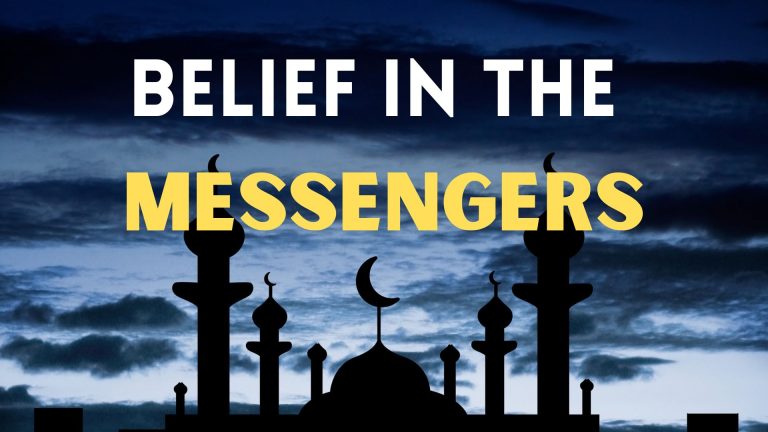Belief in Angels Of Allah
In Islam, angels are regarded as real beings created by God. They are not divine or semi-divine, and they are not God’s associates overseeing different parts of the universe. Unlike in some belief systems, angels in Islam are not objects of worship or intermediaries between humans and God. Instead, they are obedient servants of God who carry out His commands.
In Islamic belief in angels, they do not experience death but are generally hidden from human senses. They are not categorized as ‘good’ or ‘evil’ angels, and there is no concept of fallen angels. Additionally, human beings do not transform into angels after death. Satan, often associated with evil in various traditions, is not considered a fallen angel in Islam but is classified as one of the jinn, a distinct creation of God alongside humans and angels.
Angelic Creation and Nature as per Islamic Belief in Angels
According to Islamic belief in angels, angels were created from light before the creation of human beings. This unique origin story is reflected in the rarity of graphic or symbolic representations of angels in Islamic art. Despite their limited depiction, angels are described in Muslim scripture as beautiful beings with wings. They are believed to exist in various cosmic hierarchies, distinguished by differences in size, status, and merit.

Angel Gabriel and the High-Ranking Throne Angels
Among angels, the archangel Gabriel holds the highest rank. Islamic tradition holds that the Prophet Muhammad PBUH saw Gabriel in his original form, underscoring Gabriel’s significance. Additionally, angels who attend the Throne of God are considered among the greatest.
These angels not only love believers but also beseech God for the forgiveness of their sins. They are responsible for carrying the Throne of God, as described by the Prophet Muhammad, who said:
“I have been permitted to speak about one of the angels of God who carry the Throne. The distance between his ear-lobes and his shoulders is equivalent to a seven-hundred-year journey.”
Angelic Attributes and Devotion
In Islamic theology, angels do not require food or drink, and they do not experience boredom or fatigue in their worship of God. They are in a constant state of glorifying and praising God, as mentioned in the Quran:
“They celebrate His praises night and day, nor do they ever slacken” (Quran 21:20).
This eternal devotion highlights the sublime nature of angels in Islamic belief.
The Number of Angels in Islamic Belief
The exact number of angels in Islamic belief is known only to God. However, there is a significant aspect of angelic presence known as the Much-Frequented House, a sacred heavenly sanctuary located above the Kaaba in Mecca. According to Islamic tradition, seventy thousand angels visit this sanctuary every day, never to return, followed by another group of angels.
Angelic Abilities, Forms, and Incarnations
In Islamic theology, angels possess immense powers bestowed upon them by God. They can take on different forms as needed. For instance, when the angel Gabriel was sent to announce the conception of Jesus to Mary, he appeared before her in the form of a man, as described in the Quran:
“Then We sent her Our angel, and he appeared before her as a man in all respects.” (Quran 19:17)
Angels have also appeared in human form in other instances, such as when they visited Abraham and Lot. Additionally, Gabriel, as the heavenly messenger to Prophet Muhammad, seemed to him in various forms, sometimes resembling one of his disciples or a desert Bedouin.

Why is it Important to Have Belief in His Angels?
Believing in angels is essential in Islam because it helps people trust in God’s power and the way He runs things. Angels show how organized and orderly the world is, and believing in them reminds us that God is always watching over us. It also reminds us that there’s more to life than just what we see; there’s a spiritual side, too.
What Are The Tasks of Angels in Islamic Belief?
In Islamic belief in angels, they are assigned various tasks by God that reflect their diverse roles and responsibilities in the physical and spiritual world.
1. Gabriel, as God’s Messenger and Revelation Conveyer
Gabriel plays a crucial role as God’s heavenly messenger to mankind in Islamic belief. He is tasked with conveying revelations from God to His human messengers. It is reflected in the Quranic verse:
“Say: whoever is an enemy to Gabriel, for he brings down the (revelation) to your heart by God’s will.” (Quran 2:97)
Another vital role is held by the Angel of Death, Gabriel, who is responsible for extracting souls from bodies at the appointed time. This process is described in the Quran:
“Say: the Angel of Death, put in charge of you, will (duly) take your souls, then shall you be brought back to your Lord.” (Quran 32:11)
2. Michael’s Role in Rain and Elemental Control
One of the prominent angels, Michael, is tasked with overseeing the distribution of rain, directing it according to God’s will. He is aided by assistants who obey God’s commands, managing the winds and clouds as decreed.
3. Israafeel’s Trumpet and the Day of Judgment
Israafeel is entrusted with the momentous task of blowing the Trumpet, heralding the onset of the Day of Judgment. This event marks a crucial aspect of Islamic eschatology.
4. Guardian Angels and Record-Keeping
Believers are assigned guardian angels who protect them throughout their lives, whether at home, traveling, asleep, or awake. Additionally, there are angels tasked with meticulously recording the deeds of every individual, both good and bad, known as the “honorable scribes.”
5. Angels in the Afterlife
Angels like Munkar and Nakeer play a role in testing individuals in the grave. Furthermore, angels are tasked with guarding Paradise and the gates of Hell, with their leader being the angel named ‘Malik.’

Additional Duties of Angels
Angels are also responsible for various other tasks, such as:
Some angels travel the world seeking gatherings where God is remembered, while others constitute God’s heavenly army, constantly worshipping Him without rest.
FAQs
Can angels disobey God?
Angels, being obedient servants of God, do not possess free will to disobey Him. They carry out His commands without question or hesitation.
Do angels have genders?
In Islamic belief, angels do not have genders as humans do. They are considered neither male nor female, although they may be referred to with masculine or feminine names in Arabic.
Can humans see angels?
Generally, angels are hidden from human senses and are not visible in their proper forms. However, there are instances in Islamic tradition where angels have appeared to humans in various forms, such as in dreams or visions.
Do angels experience emotions?
Angels do not experience emotions such as boredom, fatigue, or desire. They are in a constant state of devotion and worship of God, fulfilling their duties without distraction.
Can humans become angels after death?
No, in Islamic belief, humans and angels are distinct creations of God with different natures and purposes. Humans do not transform into angels after death.
Last Words
In Islam, belief in angels is an essential part of the faith, reflecting the unseen world that coexists with the visible universe. Angels are revered as obedient servants of God, carrying out His commands without question.
They play diverse roles in the physical and spiritual world, from conveying revelations to guarding individuals and recording their deeds. The belief in angels underscores the Islamic view of a structured, purposeful universe governed by God’s will, with angels serving as a reminder of His power and presence.





